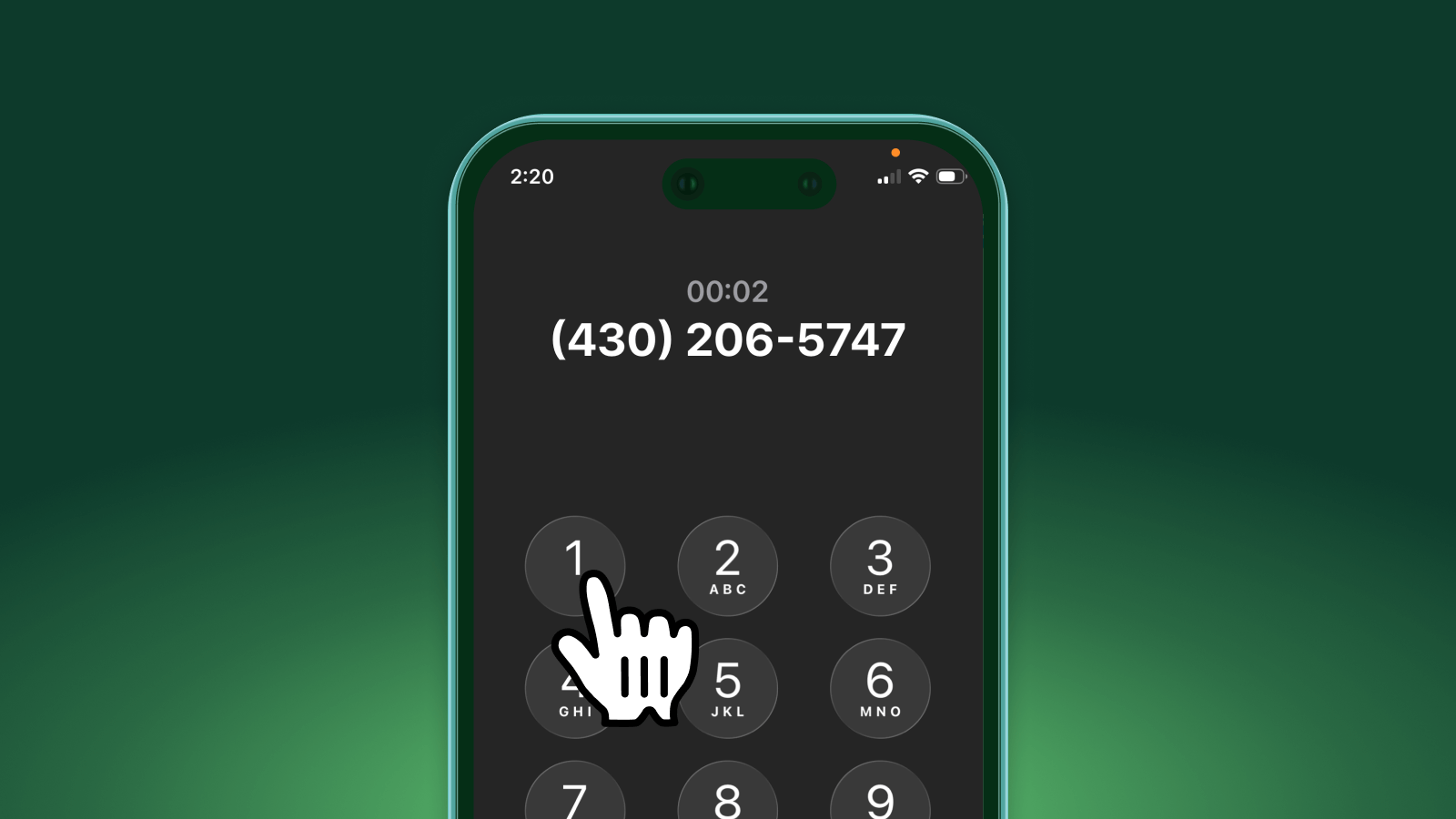- Virtual receptionists can handle calls 24/7 while costing less than full-time staff
- There are three main types: IVR systems, human-powered services, and AI receptionists
- Virtual receptionists focus mainly on phone calls, scheduling appointments, and taking messages
If you run a business that gets a lot of calls, you know the challenge: the phone rings non-stop, and you can't let calls go to voicemail—that could be a potential sale or a customer needing help. This is exactly where a virtual receptionist comes in handy.
What is a virtual receptionist?
A virtual receptionist is either a service or software that handles incoming calls for you. They can answer basic questions, schedule appointments, and perform call routing to make sure calls get to the right person at your company.
Why hire a virtual receptionist?
Hiring a virtual receptionist brings several benefits:
- Cost Savings: Employing full-time staff is expensive—think salaries, benefits, and office space. Virtual receptionists can be a more budget-friendly option, especially AI-powered ones, which are ideal for small businesses.
- Time Savings: Many business owners find themselves tied up with reception duties. By outsourcing this task, they can focus on growing their business.
- 24/7 Availability: Virtual receptionists can take calls outside of business hours, over weekends, and on holidays, so you never miss an important call.
- Scalability: These services can scale with your business, helping you manage call volume as your business grows or during busy periods without the need to hire or fire staff.
- Better Customer Experience: According to online review statistics, 37% of negative reviews stem from poor communication. By providing better phone support, you can improve your customer experience and reputation.
- Multiple Languages: If your business receives inbound calls from customers who speak different languages, a virtual receptionist service can help you increase customer satisfaction.
Types of virtual receptionists
Companies that advertise a "virtual receptionist service" are often referring to various types of services. Some may be thinking of a large call center while others may have a simple voicemail assistant app in mind. The quality, cost, and customer experience can vary widely. It’s key to know the differences.
Interactive Voice Response (IVR) Systems
You've probably encountered an IVR when you call a large company like a bank. “For customer service, press 1. To check your balance, press 2.” IVRs use pre-recorded messages and allow callers to navigate a menu by pressing buttons on their phone. They’re not traditional receptionists, but many businesses use IVRs under the 'virtual receptionist' label because similar to a virtual receptionist service they can ensure that caller gets routed to the correct department. IVRs are also referred to as automated answering services.
Human-Powered Virtual Receptionists
These are services that employ people to answer your calls remotely. They "virtual" in that they aren’t in your office but still act as your front desk. Another term that is frequently used is remote receptionist. The average staffer at a virtual receptionist company handle calls for 10-30 different businesses, so while you can set basic instructions, they aren't dedicated to just your business. Their main job is to take messages and manage basic follow-ups, though for an extra fee, they might handle some admin tasks like booking appointments. To ensure remote staff still feel connected and aligned with company goals, some businesses rely on employee engagement software to maintain communication and track team sentiment.
AI Virtual Receptionists
An AI answering service can do much of what a human-powered service can, but often at a lower cost. They use artificial intelligence to interact with callers, providing a seamless experience that can sometimes mimic real human interaction.
Is a virtual receptionist the same as a virtual assistant?
Not quite. A virtual receptionist primarily focuses on handling incoming calls. They're your frontline for phone interactions, managing appointments, and routing calls.
On the other hand, a virtual assistant offers broader support for business operations, like managing emails, handling calendar appointments, and sometimes even social media or project management. While they are both trained professionals, think of a virtual receptionist as a specialized type of virtual assistant with a focus on voice communications.
What's the difference between a virtual receptionist and a call center?
The main difference lies in the scope and scale. A virtual receptionist service is typically designed to manage calls for small to medium-sized businesses. They might handle other communication tasks, but their primary role is to act as your reception desk.
A call center, however, is equipped to handle a much larger volume of calls and usually provides support for larger organizations or businesses with high call volumes.
Call centers can handle customer service inquiries, technical support, and more, across multiple channels beyond just phone calls.
Do virtual receptionists only handle phone calls?
Primarily, yes, but some virtual receptionist services may offer other forms of communication. Depending on the service provider, the live virtual receptionist you hire might also manage live chat, text messages, and email interactions.
What does a virtual receptionist do?
In short, a virtual receptionist answer calls for other businesses according to a script and takes messages. They can be trained to transfer calls to other members of an in house team. Certain businesses may have a virtual receptionist may do other administrative tasks manage calendars, take appointments, input new client information into CRMs, or answer customer inquiries.
Which industries benefit the most from virtual receptionists?
While virtually any business can benefit from professional call handling, certain industries find virtual receptionist services particularly valuable:
- Financial Services: Tax season can overwhelm small accounting firms with incoming calls from impatient customers. An accounting answering service helps manage overflow calls during busy seasons while maintaining professional client communication.
- Legal Practice: For law firms, a single missed call could mean significant lost revenue, which is why a law firm answering service is a crucial investment. These services ensure every potential client receives prompt, professional attention.
- Technology and Startups: Many managed service providers are turning IT answering services to manage their help desk operations. These services efficiently collect essential information and create support tickets, streamlining the customer support process.
- Healthcare: Medical practices benefit from virtual receptionists who can handle appointment scheduling, insurance verification, and urgent call routing while maintaining HIPAA compliance. This ensures both efficiency and patient privacy.
- Real Estate: Agents and brokers rely on real estate virtual receptionists to capture every potential buyer or seller inquiry, especially during property showings or client meetings. This ensures no opportunity is missed when agents are unavailable.
Should you hire a virtual receptionist service?
It can be overwhelming to consider the different answering service options available to you. If you have the budget and your business needs go far beyond answering calls and taking messages, then a full-time employee may be the best fit for you.
If you need assistance with emails, contacting customers, and managing your schedule, the scope of a virtual receptionist may be too narrow for your need. Instead, you need an assistant.
However, if you need help answering the phone and taking a message, an human-powered firm or AI virtual receptionist may be exactly the right solution to ensure your phone lines and being answered promptly.
Nick Lau is a copywriter and content lead for Upfirst.ai. A self-starter at heart, he dove into marketing in 2015 by launching an e-commerce company, selling private-labeled products on Amazon and Shopify. When he’s not crafting copy, you might spot him on a winding road trip to the coasts or through forests, in search of unexplored places.








